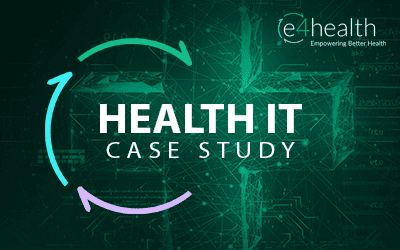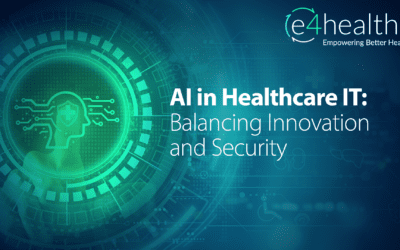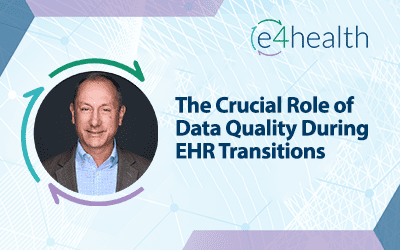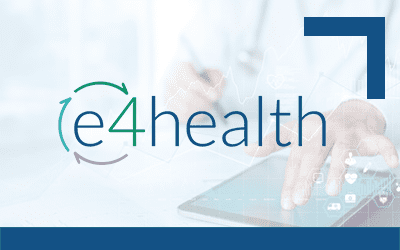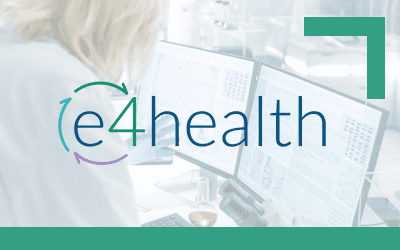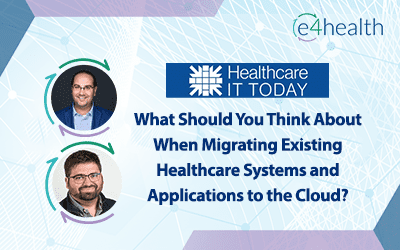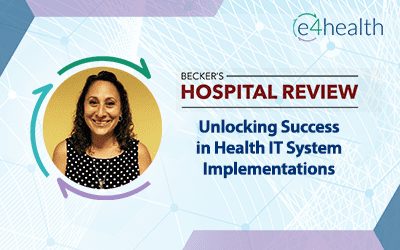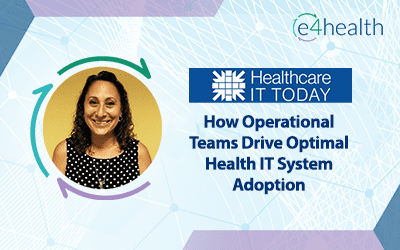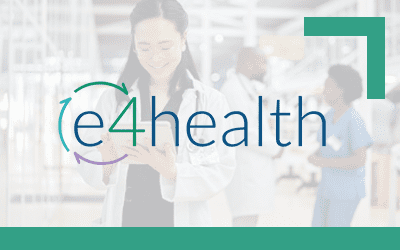[pac_divi_table_of_contents included_headings="on|on|on|off|off|off" level_markers_1="decimal" level_markers_2="decimal" title_container_bg_color="#00acb1" body_area_text_link_underline="#00acb1" body_area_text_link_underline_thickness="0px"...
Healthcare technology and information systems guidance and expertise.
AI in Healthcare IT: Balancing Innovation and Security
Feb 24, 2025 | Article, Blog, Health IT, News
In an era where technology permeates every aspect of healthcare, the importance of robust regulatory oversight in healthcare IT cannot be overstated. A recent study by Cornell University’s ILR School, led by Rosemary Batt, has unveiled critical insights into the consequences of insufficient regulation in this vital sector.
The research paints a challenging picture of the healthcare IT landscape. Despite lofty promises of enhanced efficiency and cost reduction, many health IT systems have fallen short of expectations. This gap between promise and reality has led to widespread frustration and burnout among healthcare professionals, undermining the very improvements these systems were meant to deliver.
The integration of AI technologies into health IT systems further complicates this scenario. While AI holds immense potential for revolutionizing patient care, it also introduces new challenges, particularly in terms of data protection and ethical use.
Rich Amelio, SVP of Health IT at e4health, offers a nuanced perspective on this complex issue: “AI integration in healthcare IT presents both transformative potential and significant challenges. While cybersecurity threats remain a concern, AI technologies can substantially reduce operational costs and revolutionize patient care. Through predictive analytics and personalized medicine, AI empowers healthcare providers to anticipate and address patient needs more effectively, potentially improving outcomes. However, realizing these benefits requires a careful balance between innovation and robust governance to ensure data integrity and patient privacy.”
Nick Raup, SVP of AI and Automation Solutions at e4health, elaborates on the current state of AI adoption in healthcare: “We’re at a critical juncture in healthcare, balancing AI adoption with patient privacy protection. Recent cyber attacks have shattered the illusion of healthcare’s immunity to such threats. However, much like the financial industry’s consumer-focused tech advancements, healthcare stands to gain significantly from AI, particularly in administrative and financial workflows. While robust cybersecurity is non-negotiable, the real power lies in pairing healthcare experts with AI technologies. This synergy not only improves efficiency and reduces costs but also ensures AI models are trained by those with hands-on industry knowledge, leading to more accurate and relevant outcomes.”
The insights from these industry leaders underscore a critical point: while AI and advanced technologies offer tremendous potential for improving healthcare delivery, their implementation must be guided by robust regulatory frameworks and industry expertise. The challenge lies in striking a balance between fostering innovation and ensuring patient safety and data security.
In light of these challenges, healthcare organizations need partners who can help them navigate the complexities of health IT implementation and optimization. e4health, with over two decades of industry expertise, stands ready to support organizations in this journey. Our focus on empowering better health through data management, quality improvement, and revenue optimization positions us uniquely to help healthcare providers reduce waste, optimize projects, and maximize outcomes while gaining efficiencies in this rapidly evolving technological landscape.
As we move forward, it’s crucial for all stakeholders in the healthcare ecosystem to reflect on the importance of regulatory oversight in health IT. The potential benefits of advanced technologies in healthcare are immense, but realizing these benefits while mitigating risks requires a concerted effort from regulators, technology providers, and healthcare organizations alike.
How to Plan for Better Data Quality in Healthcare
Sep 24, 2024 | Article, Health IT, HIT/HIM, Industry Insights, News
📊 Data Quality in Healthcare: A Critical Component for EHR SuccessAs healthcare organizations continue to implement and optimize EHR systems, ensuring data quality has never been more crucial. In the second part of a three-part Health Data Management series on patient...
Ensuring Data Quality During EHR Transitions
Sep 9, 2024 | Article, Health IT, HIT/HIM, Industry Insights, News
"In an era in which the U.S. is projected to spend nearly $19.9 billion on EHRs by the end of 2024, health systems cannot afford to overlook the importance of data quality. However, many health systems are unprepared and under budgeted for the extensive work required...
The Critical Importance of Digitizing Patient Records in Modern Healthcare
Aug 20, 2024 | Article, Health IT, HIT/HIM, Industry Insights, News
In today's rapidly evolving healthcare landscape, the digitization of patient records has become more than just a technological advancement - it's a necessity for ensuring efficient, accurate, and secure healthcare delivery. The Imperative for Digital Transformation ...
Atlantic General CFO’s Health IT Advice Published in HFMA: Smart Partners Matter
May 2, 2024 | Article, Health IT, HIT/HIM, Industry Insights, News
Finding the right approach to health IT budgeting is a complex task. A recent HFMA article highlights the intricacies of financial decisions related to health technology investments. Advanced automation is necessary, but the health system’s bottom line must be...
e4health’s CIO Max Lawson and VP of Healthcare IT Operations & Consulting Rich Amelio Featured in Healthcare IT Today Article
Nov 14, 2023 | Health IT, HIT/HIM, Industry Insights, News
What Should You Think About When Migrating Existing Healthcare Systems and Applications to the Cloud?e4health has the answers. Moving to the cloud can bring numerous benefits for your organization, including increased flexibility, scalability, and cost savings. Don't...
Unlocking Success in Health IT System Implementations: Insights from e4health’s Interview with Becker’s
Oct 25, 2023 | Article, Health IT, HIT/HIM, News
Mitigate revenue loss during EHR implementationThe implementation and conversion to new clinical and financial systems is a pivotal event for healthcare organizations. While these transitions promise new capabilities to enhance patient care, streamline operations, and...
e4health Featured in Healthcare IT Today
Oct 5, 2023 | Article, Health IT, HIT/HIM, Industry Insights, News
The success of any major IT system change hinges on having the right people working on the right tasks through every step of the process. Each phase of a project, from ideation to activation, demands specific skills and insights. Cynthia Casatelli, Senior Consultant...
Access the e4health Road to RevElate Webinar Recording Archive
Sep 9, 2023 | Blog, Health IT, HIT/HIM, Webinar
Over the past year, the e4health Team has produced five educational webinars to help organizations prepare for Oracle Cerner RevElate. We're happy to share on-demand recording links for each of these sessions below. RevElate Fireside Chat: Where are we now? Click to...
RevElate Readiness: What Does Operational Readiness Mean?
Jul 15, 2023 | Blog, Health IT, News
The Road to RevElate begins from a variety of starting points. The journey, though, regardless of the starting point, can be fraught with uncertainty, ambiguity and unknowns. It’s hard to wrap your hands around what the future entails and knowing your gaps and pain...
Transitioning to RevElate: Meaningful Differences Between the Foundational Applications
Mar 30, 2023 | Health IT
The transition to RevElate – especially for Oracle Cerner customers who are not familiar with Soarian Financials – is a significant change event. And it may be tempting to down-play the significance of this change. A better approach to managing the change is to...
